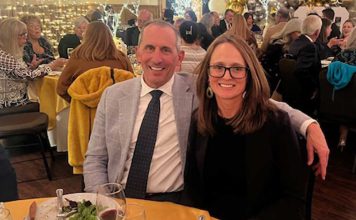Graduation parties next month could force some parents to cough
up a lot more than a fancy dinner and gift.
Gilroy – Graduation parties next month could force some parents to cough up a lot more than a fancy dinner and gift.
Parents who let teenagers celebrate the big day by drinking at home could face fines of up to $2,000 under a city “social hosting” law slated for approval by June 15, when hundreds of students graduate from Gilroy High School.
On Monday, city council voted 6-1 to proceed with an emergency version of the law which, if approved at a June 4 meeting, will take immediate effect. The social hosting ordinance will penalize adults who provide a haven for underage drinkers. It calls for an initial warning followed by escalating fines of $250, $1,000 and $2,000 for each subsequent party.
Police retain discretion under the ordinance to waive or increase fines depending on the nature of the incident. Parents who are out of town during a party, for instance, may only receive a warning for a first offense while adults overseeing underage drinkers could face an immediate $2,000 fine.
The regulation defines a party as any gathering of at least four underage drinkers.
“There’s a problem with some parents who let their kids have parties at home,” said Councilman Dion Bracco, who owns a local tow truck company. “I know from my business because we clean it up – it’s bad to come up on a car accident and there are young kids laying on the street. Some adults don’t think about that. It can happen. I’ve seen it happen.”
The Gilroy ordinance is modeled on similar laws in Marin and Ventura counties. The former county does not require police to issue written warnings before issuing an initial fine of $750, and the county allows fines as high as $2,500. Ventura County imposes a $1,000 fine if a second incident occurs within a 12-month period after one warning.
Gilroy police initially called for flexibility on warnings and a penalty schedule ranging from $250 to $1,000. Council members left police discretion on the warnings but increased fines at the request of Councilman Peter Arellano.
“I’d like to see it go up a little faster and a little harder,” Arellano said. The councilman failed to convince his colleagues to lower the threshold on the definition of a “gathering” from four to two underage drinkers.
“We thought that four was reasonable,” said Police Chief Gregg Giusiana. “Usually we don’t get calls on parties with a couple of kids drinking.”
Council removed language that would have allowed police to go after landlords in the event parents did not respond to police warnings or fines. That portion of the regulation, Giusiana acknowledged, could lead to evictions and simply relocate the problem.
The social hosting ordinance was initiated by the South County Collaborative, a consortium of health- and human-service agencies that is spearheading the local fight against underage drinking.
“We need to figure out a way to get parents away from thinking that ‘kids are going to drink, so it’s better that they drink in our house instead of somewhere else,'” said Dina Campeau, co-chairperson of the South County Collaborative. “I think that’s one of the biggest challenges for us – accomplishing that shift in social norms.”
In addition to the social host ordinance, the group is working with state legislators to impose harsher regulations on so-called “alco-pops” – fruit-flavored liquors marketed toward underage drinkers – and is developing anti-drinking programs for middle school students. They are also lobbying Morgan Hill council members to adopt a similar social hosting ordinance.
Cary O’Neal, a 47-year-old parent in Gilroy, said the city should reduce fines for the first few incidents, but he agreed that a third incident merits a “stiff response.”
“My kids have had a party with me not there before,” O’Neal said Tuesday in an interview at Nob Hill Foods. “I had to correct it on my own. They haven’t had a party since.
“But there are some parents that turn their backs on those situations,” he added. “This forces them to be responsible.”
Jesse Nez, 20, said he recently had a party busted by police, though never during high school.
“I like the idea that the kids should be (responsible) for it,” he said. “It’s their deal. And if parents knew about the party, they should be fined too.”
The social hosting ordinance will take effect at a June 4 council meeting, assuming council approves the regulation as an emergency measure. Normal ordinances gain force of law 30 days after council approval. Craig Gartman is the only councilman opposing the social hosting ordinance. On Monday, he said the city should instead focus on educating youths about the dangers of alcohol and go after “the people who provide the alcohol” to minors.
“Suddenly parents not only are going to be hit with the embarrassment of their kids being arrested,” Gartman said, “but all of a sudden they’re going to have a financial bill to pay as well.”












